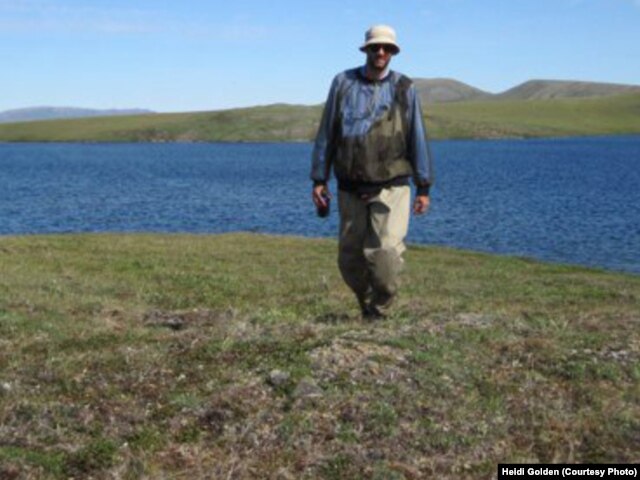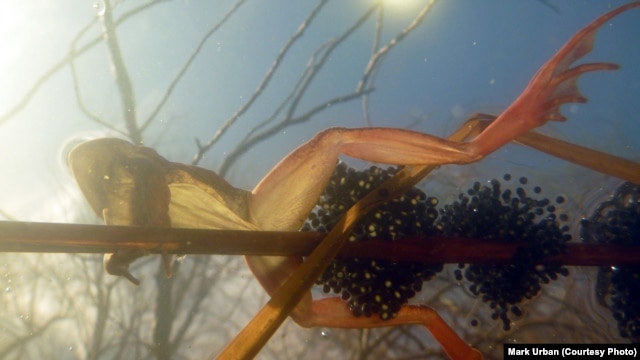Extinction Risk Will Rise as Earth Warms, Researcher Says
Rosanne Skirble
One in six species could be threatened with extinction from climate change unless steps are taken to reduce global warming emissions, according a new study.
Lead author Mark Urban, an ecologist at the University of Connecticut, reviewed 131 articles on species extinction to come up with a global meta-analysis of the issue.
The data, published in the journal Science, show that as the Earth warms, extinction risk will increase. Urban said the increase wouldn't look like a straight line, but instead might quickly curve upward.
“There is an acceleration of those extinction risks as we get into a warmer and warmer climate,” he said.
Today, 3 percent of species are at risk of disappearing, but the extinction rate climbs as the planet approaches 4.3 degrees Celsius above pre-industrial times. Experts say that is a tipping point that will lead to the worst impacts of climate change.
“We reach the point where we are at 16 percent risk for extinction under a business-as-usual scenario," Urban said, adding that some regions of the world would be harder hit than others.
“The small land masses play a role, places with lots of endemic species like Australia and South America," he said. "These are species that are already constrained to small ranges, and so even a small shift in those ranges could endanger them.”
Scientists predict rising seas, stronger and more frequent storms, drought, fire and floods with rising temperatures. Climate change will alter species and the habitats in which they live, Urban warned. Their loss will spread disease and have other unintended consequences.
“If you think about our food security and our crops, it is important to understand the rainfall pattern in the future and the ability of those crops to still be grown," Urban said. If, for example, a key predator of a particular crop pest falls victim to climate change, suddenly that pest increases, and the crop yield decreases.
Urban said his study gives policymakers and the public added incentive to adopt new strategies to conserve and protect the most threatened species.
“We don’t need to see extinctions occur," he said. "We can do something right now.”
Urban hopes increased awareness about the impact of climate change will spur individuals to do their part to combat emissions. He also hopes world leaders might agree to more limits on greenhouse gas emissions at this year's U.N. Climate Change Conference in Paris.
Urban’s hope is that in 20 years, "we can look back and say that we averted this disaster.”


